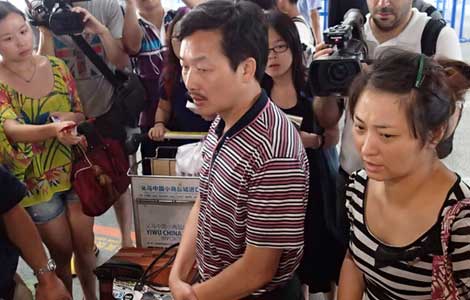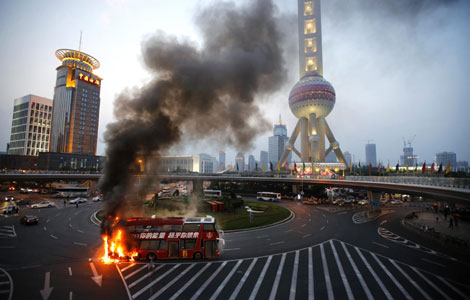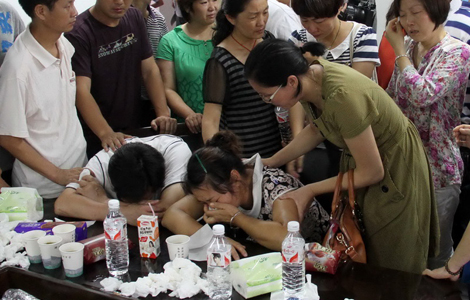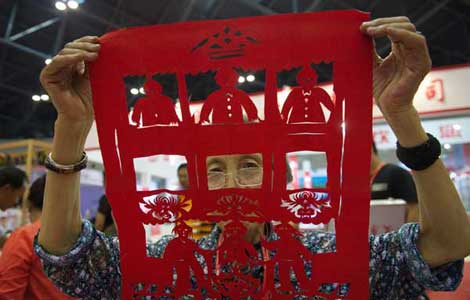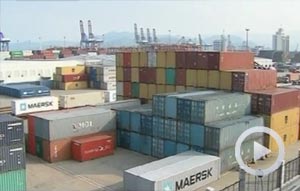Hong Kong in no mood to put up with radicals
Updated: 2013-07-09 07:02
By Yang Sheng (HK Edition)
|
||||||||
I refer to a commentary penned by Mrs Anson Chan, entitled "Hong Kong in the mood for democracy", published recently in SCMP.
Judging by the article's harsh wording, one can obviously see that Chan has lost her wit, grace and poise. She first accused China Daily of "unleashing the torrent of criticism" of Professor Tai Yiu-ting, called for a "stop to vilifying pro-democracy campaigners", and went on to say "there is the carefully orchestrated campaign by some chambers of commerce and other bastions of vested interest" against civic disobedience.
We respectfully disagree with the ex-chief secretary's groundless accusation, and feel compelled to clarify a few matters. First, China Daily is just doing what it thinks is right and will keep doing so by pointing out the truth. The newspaper's sole objective is to examine and comment on matters of public interest in both the SAR and the nation.
However, she did hit the mark by saying: "What we need are constructive ideas on how to build a consensus and a willingness to engage in rational discussion." This is absolutely right, we can't agree more with Chan, but how can we achieve this goal? Being a bit more compromising, rational and accommodating is simply the key. Hong Kong is a democratic society with a great variety of political aspirations and where all parties concerned have to express their political desires legally, peacefully.
It is, therefore, immoral to override others' will to achieve anything, no matter how high your moral ground is, and how noble your ideology is. Some well-educated scholars or self-assured politicians are always considering they are better than the common folk, but the reality is that few people are that saintly, no matter how much they might want to believe otherwise. Anyone who is unbiased will agree that the majority of Hong Kong residents do not accept "Occupy Central" - an act of sheer bravado, because it will subvert the rule of law. A public opinion poll conducted by the Democratic Alliance for the Betterment and Progress of Hong Kong in March 26-30 found 68.6 percent of the respondents worried that "Occupy Central" would inflict heavy economic losses on Hong Kong, while 70 percent of the respondents said they do not support this political stunt. A survey from April 15-18 by the Public Opinion Program of the University of Hong Kong showed 51 percent of the respondents were opposed to "Occupy Central". Still another poll carried out in the second half of April among businesses based in Hong Kong indicated as much as 84.8 percent of the interviewees "do not support", "oppose" or "firmly oppose" "Occupy Central".
So, without doubt, our society is not in the mood for any attempt to blackmail the central government by hijacking popular will, deviating from the legal track of constitutional reform and resorting to illegal means. Such attempts will never succeed. A case in point is that five lawmakers from the Civic Party and the League of Social Democrats put on such political farce they billed as "referendum by five constituencies" in 2010, in which they pushed the central authorities and SAR government to yield to their version of constitutional reform by resigning from the Legislative Council to force a by-election. Hong Kong voters dealt them a resounding blow by shunning the polling stations on voting day. It proves no one is allowed to tramp on others for selfish political gains.
Second, Hong Kong already has a successful case in constitutional reform, circa 2010. It demonstrates that as long as all stakeholders concerned respect the central government's authority over Hong Kong's constitutional reform, follow the "five-step procedure" prescribed in the Basic Law and relevant decisions of the National People's Congress Standing Committee, and communicate with one another positively and pragmatically, it is entirely possible to forge consensus, agree to disagree at the same time. It is the best way to push Hong Kong's constitutional reform forward orderly and surely.
With the illegal nature of "Occupy Central" completely bared under the sun, all members of Hong Kong society should rightfully condemn it as well as its masterminds and advocates for the sake of Hong Kong's social order.
Finally, Chan is seemingly not in the mood for freedom of expression. In her column, she denounced that "some chambers of commerce and other bastions of vested interest" have taken out full-page "anti-Occupy Central" advertisements, and "a number of high-profile figures have also jumped on the bandwagon". Was she suggesting that people who are voicing their dissent over "Occupy Central" in the press shouldn't do so? Property tycoon Lee Shau-kee is the latest heavyweight in town to lambast the "Occupy Central" movement for being "too radical", and warned it could have a negative impact on the city because "Central is the heart of Hong Kong, and it should not be paralyzed" . Will "Uncle Fourth's" remarks upset Chan again?
The author is a current affairs commentator.
(HK Edition 07/09/2013 page1)
Most Viewed
Editor's Picks

|

|

|

|

|

|
Today's Top News
Air crash victims' parents leave for US
Ex-rail chief sentenced
Terror law called for after attack
Subsidies aid poor families
Premier Li lauds Guangxi's potential
Zhuhai's draft to establish new models
Mining firm confirmed to have polluted S China river
Ex-minister gets suspended death
US Weekly

|

|
